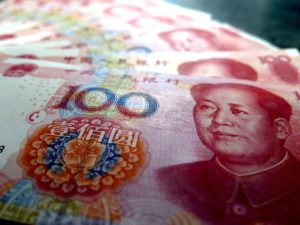As reported in the South China Morning Post (SCMP), Stanley Black & Decker has closed its Shenzhen factory, “[laying] off all of its 1,000 workers after 25 years of operations.” This, according to the SCMP, “reflects the changing business environment in the world’s second-biggest economy.” In reality, however, it highlights long-standing, ongoing China risks.
Stanley Black & Decker’s departure is being spun as further evidencing “Shenzhen’s transition from a manufacturing base, which relies mainly on relatively cheap land and labour, to a technology hub – i.e. China’s answer to Silicon Valley.” Yet “the entrance [to the Shenzhen factory] was swarming with human resource managers and labour agents who were trying to persuade laid-off workers from the closed factory to join other ones.” One human resource manager quoted in the SCMP said, “Shenzhen factories are facing a sudden labour shortage … as many factories have orders pouring in and shifting from overseas.”
1. China Problems
Shenzhen is changing and moving up the value chain, but its old-school manufacturing sector is alive and kicking, as shown by the demand for the laid-off Stanley Black & Decker’s employees. Looking closely at the story, it appears Stanley Black & Decker’s decision was not the result of falling out of place in the brave new Shenzhen – but rather of the same old China problems, including the following:
A. Tariffs and AD/CVD Duties on China Products
According to a worker, “the Shenzhen factory focused on supplies to the US market, but in the past couple of years, we had been producing semi-finished products and shipping them to Vietnam’s plant for assembly.” There may be a variety of reasons for this shift, but it’s hard to imagine the tariffs imposed on a broad range of Chinese products by the United States didn’t play a role. Though a new Biden administration might provide some tariff relief, it’s worth remembering there are also numerous antidumping and countervailing (AD/CVD) orders against certain Chinese products, some far predating Trump’s trade war.
B. Land Use Rights are Never Certain
The same worker quoted above “speculated that the upcoming expiration of the company’s land lease could have been a factor in the closure. Land lease prices have been surging in Shenzhen due to limited supply. ‘Some of us guessed that the factory’s days were numbered, as the land lease would expire next February.'” China’s real estate market operates in a fundamentally different way than that in most market economies. As made clear by China’s Land Administration Law, “the land in urban areas is owned by the state” (Article 9) and the most a private company like Stanley Black & Decker can aspire to get in China are land-use rights (see Article 7 of the Urban Real Estate Administration Law), which are granted by the authorities. According to Chinese regulations, the maximum validity of a land-use right for commercial purposes is 40 years and when a company’s land-use rights are about to expire , they are at the mercy of the local authorities. If the authorities are keen on, say, redeveloping the factory land into apartments, there will be little the company can do to sway their decision. The real estate regime in China, especially regarding commercial activities, has uncertainty baked into it. In fact, trouble can arise even during the lease period. Land is subject to expropriation just about everywhere in the world, but the risks are obviously higher when the government that wants to take the land is already its legal owner.
C. Labor
According to the SCMP, “there appeared to be relatively less anger among workers and the local community over the closure, unlike a decade ago when the relocation of the Stanley Black & Decker factory from one place in Shenzhen to another triggered a massive protest.” The availability of jobs for at least some of the workers (even if “not offering pay and welfare benefits comparable” to Stanley Black & Decker’s) probably helped assuage worker anger over the closure. Notice, though, that even relocating the factory within Shenzhen led to a serious protest in the past. Without doubt, if an American company required its workers to considerably increase their commute time, it could lead to serious labor dissatisfaction. In the end, though, Americans generally have a clearer understanding of the demands of a market economy, if only because it’s the only kind of economy most Americans will have experienced. By contrast, for many Chinese, particularly those steeped in the tradition of the all-providing danwei, the idea that an employer can fire at will – or even move into new premises at will – is anathema to their view of how the world should work. Such thinking is especially prevalent among the Communist Party cadres who run local governments (whose lives retain many of the danwei arrangements, such as employer-provided housing). They may look with disfavor at layoffs and inconveniences to the labor force, and treat companies – particularly foreign companies – accordingly. Even officials who want to push their localities in the direction of market reform (and/or who have a stronger appreciation of the tax revenues from the private sector) will be wary of any moves that could lead to unrest. As with the land issue, the bottom line is companies operating in China are subject to government interference that would be unthinkable in the United States.
D. CCP Lies and Randomness
Stanley Black & Decker’s departure was “even more surprising after the state-run Guangdong Television [GDTV] ran a report on the factory in September, pointing to it as a success story amid celebrations for the 40th anniversary of Shenzhen being named a special economic zone. The report claimed the company was planning to continue investing in automation and digitization, with an aim of turning it into a ‘smart’ factory by 2028.” Well, one of two things happened here: Either GDTV reported falsehoods (very plausible) or, despite Stanley Black & Decker’s efforts to fit into the new “Silicon Valley with Chinese Characteristics,” the local authorities decided it needed to go. Maybe they decided the area needed more apartments and/or they could not agree on new land-use terms with Stanley Black & Decker, or maybe word came down from on high that the American company was to be shown out the door: Enjoy Vietnam and don’t let the door hit you as you cross the Red River.
A lot is surely changing in Shenzhen and China – but a lot isn’t. Just as beyond the glitzy skyscrapers of Shenzhen’s central business district there are large swathes of unlovely industrial areas, the fundamental China issues for foreign business remain beneath the hype.

























